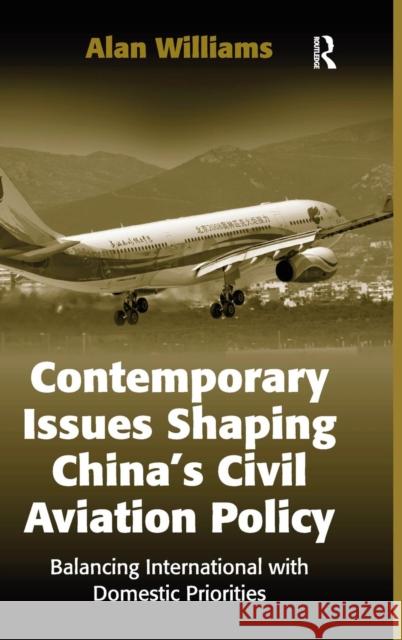Contemporary Issues Shaping China's Civil Aviation Policy: Balancing International with Domestic Priorities » książka
Contemporary Issues Shaping China's Civil Aviation Policy: Balancing International with Domestic Priorities
ISBN-13: 9780754671404 / Angielski / Twarda / 2009 / 258 str.
Contemporary Issues Shaping China's Civil Aviation Policy: Balancing International with Domestic Priorities
ISBN-13: 9780754671404 / Angielski / Twarda / 2009 / 258 str.
(netto: 718,58 VAT: 5%)
Najniższa cena z 30 dni: 654,86
ok. 16-18 dni roboczych.
Darmowa dostawa!
The emergence of China as a future major participant in international aviation raises some interesting questions, especially from a strategic policy perspective. The progressive shift from a command to a mixed market economy under the central leadership of the Beijing administration now finds itself faced with the needs to balance a strategic duality in the context of the role of China's civil aviation industry. In a very real sense this situation requires the design and accommodation of a growing role for China's mainstream carriers within the operational context of the need to meet the complex challenges from increasing international market competition. In parallel with such major external pressures, central government must also accommodate domestic priorities with regard to internal economic development. The fruits of economic progress as a function of market reform are commonly understood to have positively reshaped the live of only a proportion of the national population to date. The need to create greater access to economic growth for the more remote western and northern provinces has required that the rapid development of airports become a factor in the planning and allocation of developmental priorities. To complicate matters further, prevailing requirements of airspace defence remain a major parameter within the larger context of national aviation policy. This book explores the political, economic and strategic issues raised by the inevitable tension between the domestic and international aspects of Beijing's current civil aviation strategy. It also seeks to identify some of the problems that face the industry as a key sector in the larger context of macroeconomic reform and the further pressures now being exerted by China's membership of the WTO.











